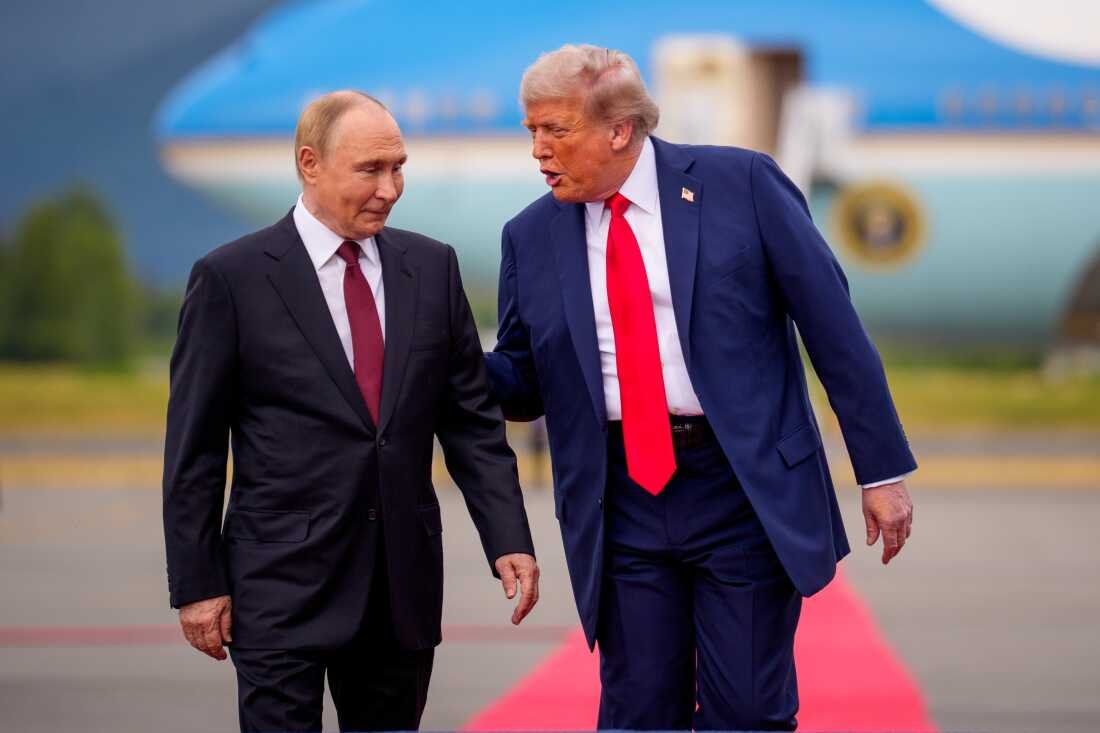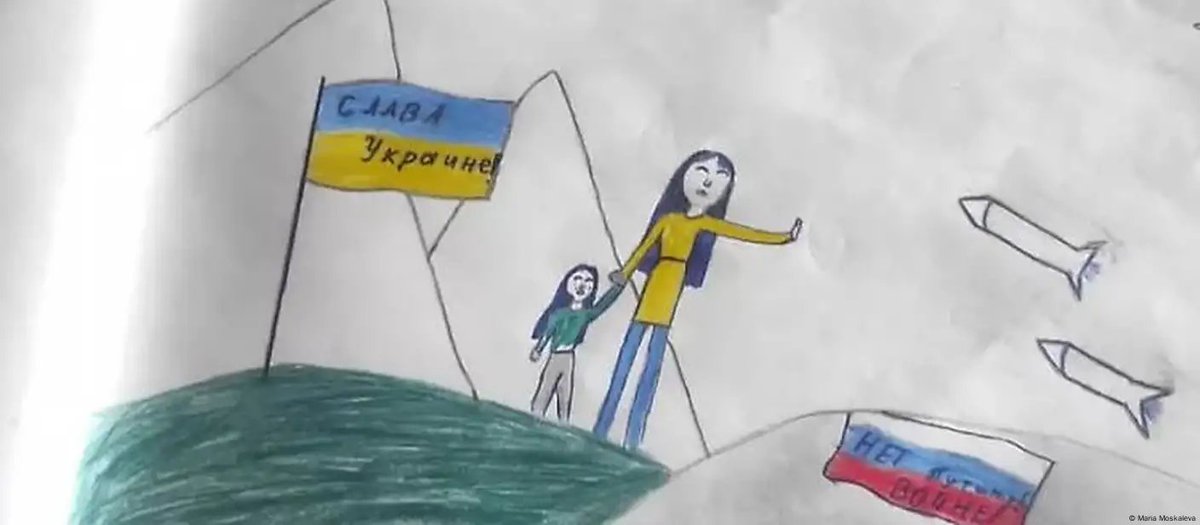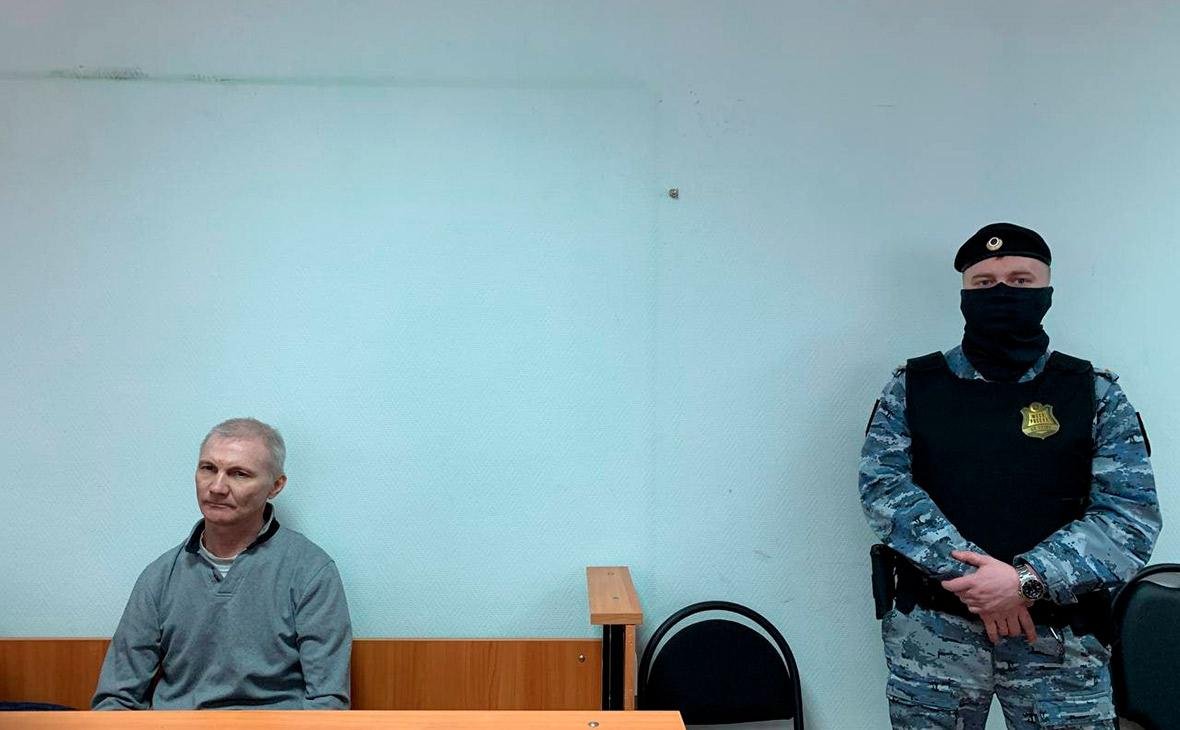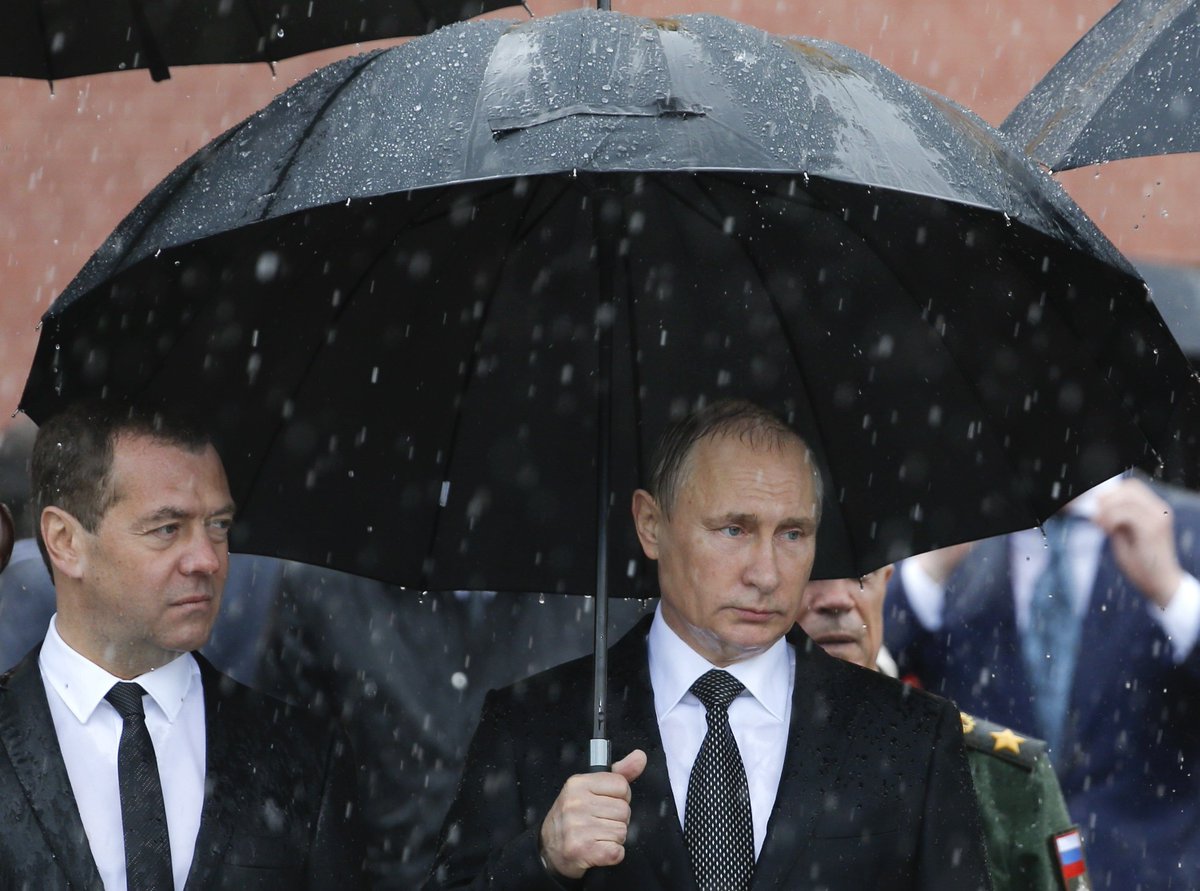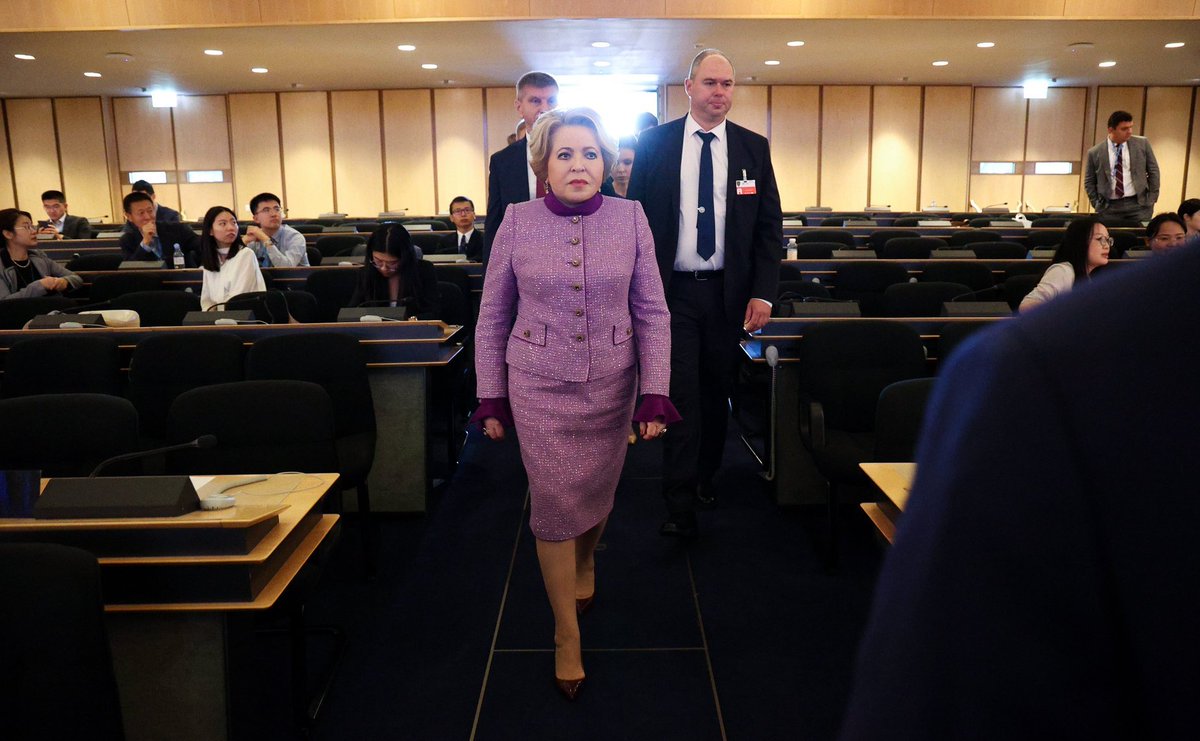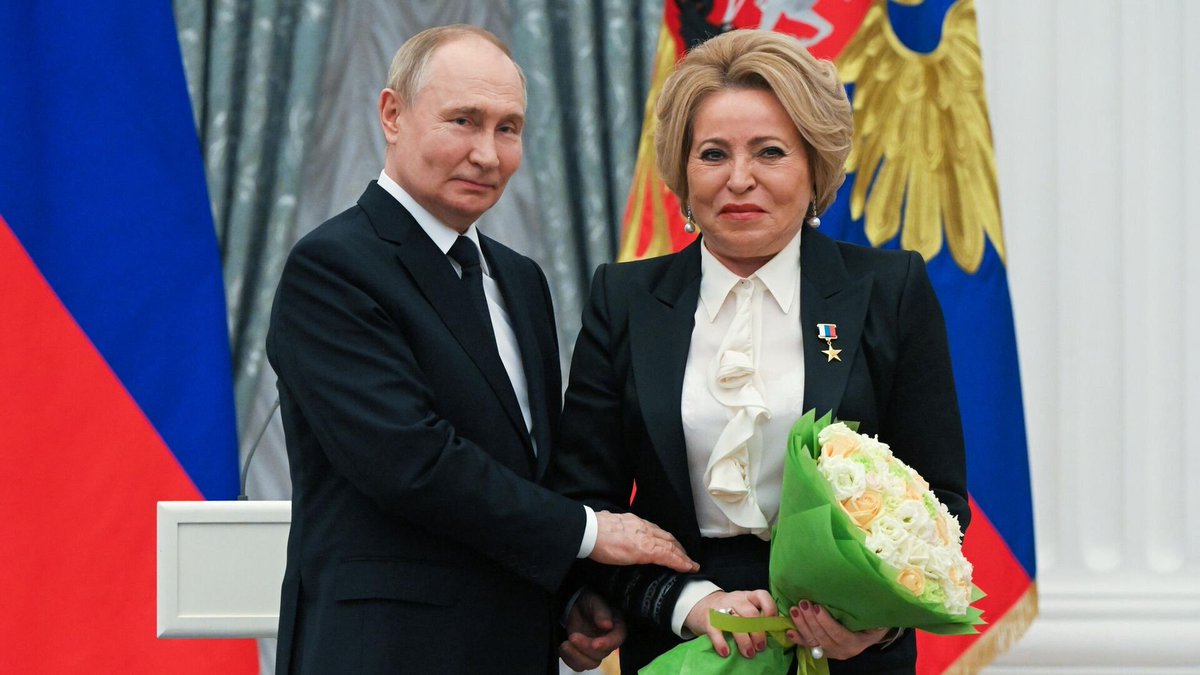I spent 10 years in Putin's prisons for the crime of political participation. Now he's counseling Trump about "rigged" elections.
🧵It's not my business to tell Americans how to conduct elections, but taking Putin's advice here is like taking fire safety tips from an arsonist
🧵It's not my business to tell Americans how to conduct elections, but taking Putin's advice here is like taking fire safety tips from an arsonist

When Putin came to power, Russia had real elections. They were imperfect, but they were real. Independent TV covered opposition candidates and challenged the official narrative. Political donations didn’t get anyone in trouble. Governors answered to voters of their respective regions, not Moscow.
That was the democracy I believed in and invested in. Then the full-scale destruction began: Putin seized NTV, then TV-6, then Izvestia. I watched it happen and thought markets would resist. They didn't. wapo.st/3JxlBzv
Without truly independent media, the opposition became invisible. You can't win elections when voters can’t hear your message. Putin understood this perfectly.
That was the democracy I believed in and invested in. Then the full-scale destruction began: Putin seized NTV, then TV-6, then Izvestia. I watched it happen and thought markets would resist. They didn't. wapo.st/3JxlBzv
Without truly independent media, the opposition became invisible. You can't win elections when voters can’t hear your message. Putin understood this perfectly.
Then came my turn. At the time, I was a successful businessman and gave money to different opposition parties and did so openly. I didn’t agree with some of the candidates and parties I gave money to, but did it nonetheless because I saw it was a way of ensuring political competition. I called for it openly and pointed to instances of state corruption. One of the corrupt officials turned out to be Putin himself.
Putin's response to this was swift: he arrested me, claiming I stole more oil from my company than it could’ve ever produced. Then there was a show trial followed by ten years in prisons in Siberia. My company, YUKOS, was destroyed, its assets were stolen. Every other businessman got the message: touch politics and you're next. cnn.com/2003/WORLD/eur…
Under arrest, I witnessed Putin use the Beslan school terrorist siege to cancel gubernatorial elections entirely. Hundreds of children were killed, and he used their deaths as an excuse to start appointing every regional leader himself (‘otherwise terrorists may get the power’). Federalism cannot survive without regional democracy. This is when Russia de facto stopped being a federation. rferl.org/a/1056377.html
Putin's response to this was swift: he arrested me, claiming I stole more oil from my company than it could’ve ever produced. Then there was a show trial followed by ten years in prisons in Siberia. My company, YUKOS, was destroyed, its assets were stolen. Every other businessman got the message: touch politics and you're next. cnn.com/2003/WORLD/eur…
Under arrest, I witnessed Putin use the Beslan school terrorist siege to cancel gubernatorial elections entirely. Hundreds of children were killed, and he used their deaths as an excuse to start appointing every regional leader himself (‘otherwise terrorists may get the power’). Federalism cannot survive without regional democracy. This is when Russia de facto stopped being a federation. rferl.org/a/1056377.html
After protests forced him to restore gubernatorial elections, Putin did it and added his signature trick: the municipal filter. Now, anyone who wanted to be on the ballot needed signatures from local elected deputies. Those deputies answered to the Kremlin. Real opposition couldn't even get on the ballot. Elections returned, but competition didn't.
At the same time came the ground-level fraud. "Carousels" of voters bused between polling stations, voting multiple times, became a common phenomenon. Millions of state employees—teachers, doctors, clerks— were forced to vote under threat of losing their jobs. Just imagine: your boss watches you enter the polling station, demands a photo of the completed ballot, gives you a day off, and pressures you to attend a rally for the correct candidate. This became commonplace during Putin’s second term. en.wikipedia.org/wiki/Carousel_…
In 2008, Putin pretended to respect the constitution’s two-term limit by stepping down — but only formally. He appointed his longtime associate and campaign manager from 2000, Dmitry Medvedev, as the successor and personally endorsed him on state TV. Medvedev then amended the constitution to extend the presidential term from 4 to 6 years. Conveniently, this change applied to the next president — and that president was Putin again. At this point, it was a managed transition of power and not a real election: the OSCE refused to even monitor the vote due to the Kremlin's heavy restrictions on observers.
At the same time came the ground-level fraud. "Carousels" of voters bused between polling stations, voting multiple times, became a common phenomenon. Millions of state employees—teachers, doctors, clerks— were forced to vote under threat of losing their jobs. Just imagine: your boss watches you enter the polling station, demands a photo of the completed ballot, gives you a day off, and pressures you to attend a rally for the correct candidate. This became commonplace during Putin’s second term. en.wikipedia.org/wiki/Carousel_…
In 2008, Putin pretended to respect the constitution’s two-term limit by stepping down — but only formally. He appointed his longtime associate and campaign manager from 2000, Dmitry Medvedev, as the successor and personally endorsed him on state TV. Medvedev then amended the constitution to extend the presidential term from 4 to 6 years. Conveniently, this change applied to the next president — and that president was Putin again. At this point, it was a managed transition of power and not a real election: the OSCE refused to even monitor the vote due to the Kremlin's heavy restrictions on observers.
Unlike in previous years, manipulation in 2008 extended into cities, not just rural areas and villages. Independent Russian observers reported fake turnout spikes, widespread absentee ballot fraud, and local protocol rewriting.
In 2012, having bypassed a “two consecutive terms” limit outlined in the constitution, Putin announced he was running again. The general elections of 2011 that came slightly before it were rigged at an unprecedented scale to favor Putin’s party and sparked the largest pro-democracy protests since the 1990s. OSCE observers stated that vote counting was flawed at ~1/3 of all polling stations.
What makes Putin’s system so dangerous is its apparent legality. Fraud is not hidden — it’s legalized. He didn’t just steal the elections; he rewrote the laws to make stealing legal. Even the ‘opposition’ parties are handpicked and loyal. Their job is not to challenge power, but to perform opposition on command. Putin came up with a way to limit the pool of candidates to just 3-4 old party leaders, against whom he looks young and energetic. It’s a system built on exhaustion and illusion: voters know it’s fake, but are told it’s real. The law is nothing because it isn't enforced and can be changed at any point.
In 2012, having bypassed a “two consecutive terms” limit outlined in the constitution, Putin announced he was running again. The general elections of 2011 that came slightly before it were rigged at an unprecedented scale to favor Putin’s party and sparked the largest pro-democracy protests since the 1990s. OSCE observers stated that vote counting was flawed at ~1/3 of all polling stations.
What makes Putin’s system so dangerous is its apparent legality. Fraud is not hidden — it’s legalized. He didn’t just steal the elections; he rewrote the laws to make stealing legal. Even the ‘opposition’ parties are handpicked and loyal. Their job is not to challenge power, but to perform opposition on command. Putin came up with a way to limit the pool of candidates to just 3-4 old party leaders, against whom he looks young and energetic. It’s a system built on exhaustion and illusion: voters know it’s fake, but are told it’s real. The law is nothing because it isn't enforced and can be changed at any point.
Old, inadequate candidates yell at each other (Putin doesn't even show up at debates, he's positioned as being "over" this fuss, bigger and wiser). The election commission, which should safeguard the vote, became a rubber stamp for the results the Kremlin desires. It doesn’t count votes, but confirms what the Kremlin already decided. Evgeny Churov ran the Election Commission from 2007 to 2016. The man actually said, out loud, "Putin is always right". Ella Pamfilova took over after him. She's better at frowning and acting worried while approving the exact same fraudulent results.
The constitutional referendum in 2020 was the ultimate mockery. Even two more extended terms weren’t enough, so he needed to reset his term limits. To do it, he created a week-long "vote" with ballots in car trunks, on park benches, and in courtyards. Legally, it was not even an election; therefore, there were no observers and no way to challenge inconsistencies.
Moscow's electronic voting of 2021 showed how tech can be weaponized by an autocrat. In one instance, opposition candidates were winning based on paper ballots from polling stations. Then electronic results arrived hours later and reversed everything. No verification was possible. No appeals were accepted. Technology made fraud invisible and uncontestable.
Moscow's electronic voting of 2021 showed how tech can be weaponized by an autocrat. In one instance, opposition candidates were winning based on paper ballots from polling stations. Then electronic results arrived hours later and reversed everything. No verification was possible. No appeals were accepted. Technology made fraud invisible and uncontestable.
Now anyone who supported Navalny, or anyone who was supported by the "Open Russia" movement I founded, is banned from running for office. Independent observers are "foreign agents". Election monitoring is essentially illegal. Putin rigged vote counts and criminalized political participation itself.
Today Russia has voting without choosing, campaigns without competition, elections without consequences. Citizens perform empty rituals knowing they're meaningless. The forms of democracy remain—ballots, polling stations, candidates—but it is theater. It took Putin 24 years to bring this performance to perfection.
So when Putin whispers to Trump about mail-in voting being "rigged," understand what you're hearing. It's not a warning from someone who prevented fraud, but instruction from someone who brought it to perfection.
Make sure to follow for more analysis on Russia and beyond
I am also on Bluesky: bsky.app/profile/khodor…
I am also on Bluesky: bsky.app/profile/khodor…
• • •
Missing some Tweet in this thread? You can try to
force a refresh


